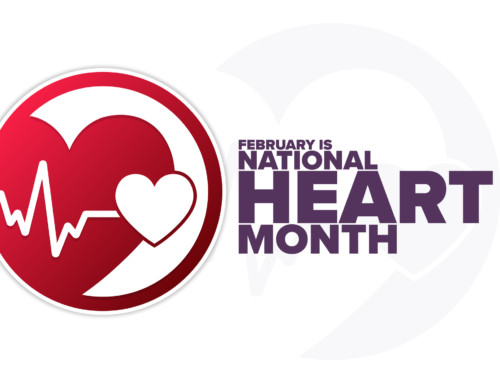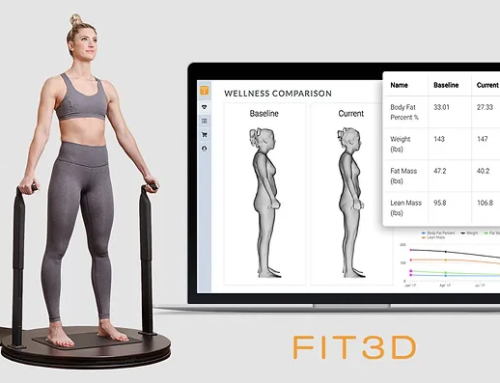When we talk about the pain and stress of a broken heart, we’re usually speaking metaphorically — but what if feeling extreme stress could physically break your heart?
It sounds dramatic, but the truth is, stress has a very real impact on our bodies. Studies and articles have focused on the impact of stress on our lives: it’s making us fatter, giving us headaches, and making us depressed — and now, we’re discovering, stress can also physically damage our hearts.
All types of stress can be bad for your health, but not all stress is created equal. Experiencing stress leads us to go into fight-or-flight mode, which asks more of your body, your heart, and cardiovascular system.
By understanding the main types of stress, and the negative symptoms associated with them, we can handle our own stress more effectively. This guide will help you identify the three most common types of stress, and give you tips and techniques to combat these stresses — so you can keep yourself, and your heart, as healthy as possible even in difficult times.
1. Acute Stress
Acute stress occurs suddenly, and often causes people to experience feelings of dizziness, hyperventilation, or a rush of adrenaline. In times of acute stress, it’s common to hear and feel one’s heartbeat pounding as if it were amplified.
Acute stress is often focused around a singular incident that’s unexpected and sudden. Your body goes into a fight-or-flight response state, raising your adrenaline and heightening your senses.
Typical causes of acute stress are:
- Car accident, or other sudden injury to yourself or a loved one
- The death of a loved one
- Unexpected loss of a job
- Loss of home and possessions to a natural disaster
Incidents of acute stress can, in extreme situations, cause a mild heart attack or cardiovascular distress — sometimes known as “broken heart syndrome.” Acute stress can damage the lining of blood vessels and increase the likelihood of blood clots. People may also experience headaches and chest pain.
During times of acute stress, prioritizing stress relief should be your top priority. Practicing yoga, taking walks outside, and maintaining a healthy diet can all help ease the physical effects of acute stress. While the emotional distress you feel may take time to heal, it’s important to take acute stress seriously in terms of its physical impact on your body and health. Regular exercise and a healthy diet can do wonders for your heart and your cardiovascular system, to keep them functioning properly even through tough times. Consult with your doctor about the best approach for your situation.
2. Episodic Acute Stress
Episodic acute stress is acute stress that happens frequently, instead of a one-time occurrence.
In these cases, a person will experience “episodes” of acute stress symptoms — like hyperventilating, dizziness, and heart-pounding — on a regular basis. This is commonly seen in individuals with high levels of anxiety or emotional instabilities; therefore, the triggers may not be as traumatic as what you’d expect with singular acute stress.
Episodic acute stress may be more prevalent in individuals who:
- Worry extensively
- Are generally anxious or irritable
- Have the quintessential “Type A” personality (hyper-focused and/or a perfectionist)
- Have emotional or mental disabilities
While a car accident can trigger acute stress in an otherwise healthy person, a person with high anxiety may experience episodic acute stress over less serious situations, such as a deadline at work, speaking in public, or a sudden change of plans. This doesn’t lessen the severity of the symptoms, or the physical impact on health. Episodic acute stress causes your body to go into fight-or-flight mode more often than it should — which puts a lot of strain on your heart and other internal organs.
Oftentimes, the best way to combat episodic acute stress is to identify the emotional source of the frequent stress, and make a lifestyle change to ease it or accommodate for it. Focus on retraining your mind and body to relax and remain calm during times of distress, fear, unpredictability, or frustration.
Explore ways to interrupt or offset the fight-or-flight response; slowing your heart rate instead of speeding it up; walking calmly instead of freezing in place; taking long, deep breaths instead of quick, short ones. Exercise, meditation, and therapy are all extremely helpful in managing stress over time. Incorporate heart-healthy habits into your lifestyle, to keep your heart fit and resilient even when you do feel stress.
3. Chronic Stress
Chronic stress is not as dramatic as acute stress, but may be more dangerous because the effects compound over time. Chronic stress is caused by repetitive actions experienced by an individual on a daily or weekly basis.
Examples of chronic stressors include:
- Interpersonal relationship issues
- Rush hour traffic
- An overbearing boss, or daily workload
These day-to-day stressors may not cause a panic attack, but the chronic strain on your body has long-term negative impacts; damaging artery walls, causing abnormally high heart rates, or causing increased blood pressure. If you have a history of heart disease, high blood pressure, or high cholesterol, you may be more susceptible to the negative effects of chronic stress.
Biologically speaking, chronic stress is not the true culprit when it comes to high blood pressure; instead, chronic stress leads to behaviors that result in consistent high blood pressure. For example, when you’re under regular stress, you’re more likely to turn to fatty and salty foods, or to avoid going to the gym — or both. You may begin drinking alcohol or smoking cigarettes on a more regular basis. If not kept in check, these negative behaviors produce high blood pressure and put extra strain on your heart.
Chronic stress can be difficult to manage, and the long-term effects to your heart can be extremely detrimental. Further research is needed to establish the direct correlation between chronic stress and negative heart and cardiovascular health, but until then, we can take steps to prevent stress from pushing us towards unhealthy habits and behaviors.
There are both mental and physical techniques to combat chronic stress — and you can try them on your own, or with the guidance of a professional therapist or counselor. Mental solutions include meditation, creating a mantra, focusing on positivity, breaking down large tasks into small steps, and relying on friends and loved ones for support. Physical solutions include exercising on a regular basis, going for walks, finding relaxing or recreational activities, and changing your diet to incorporate more heart-healthy foods.





